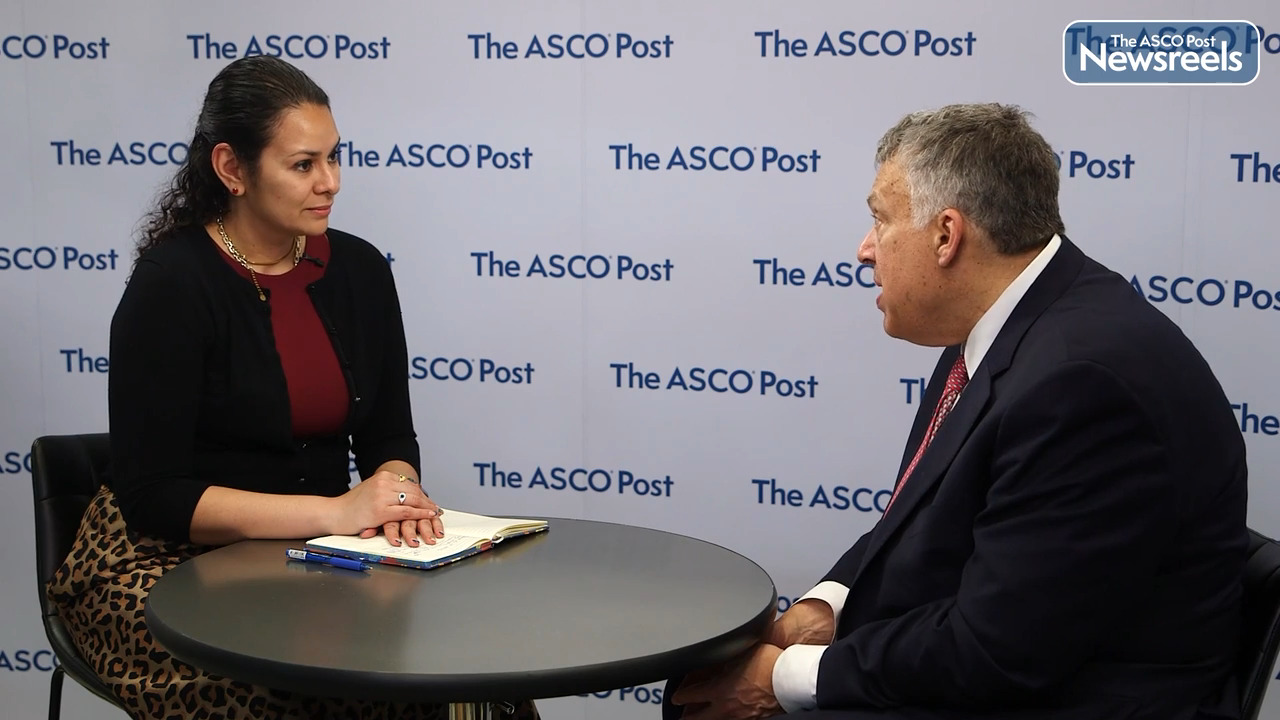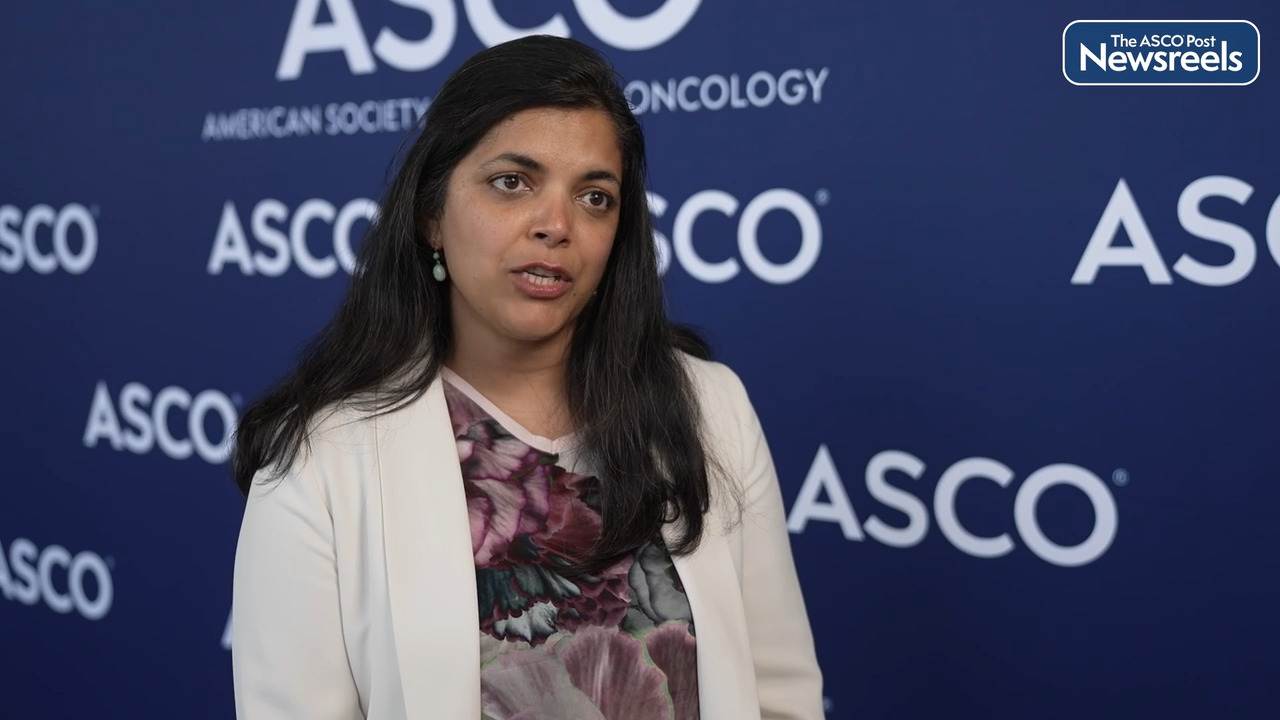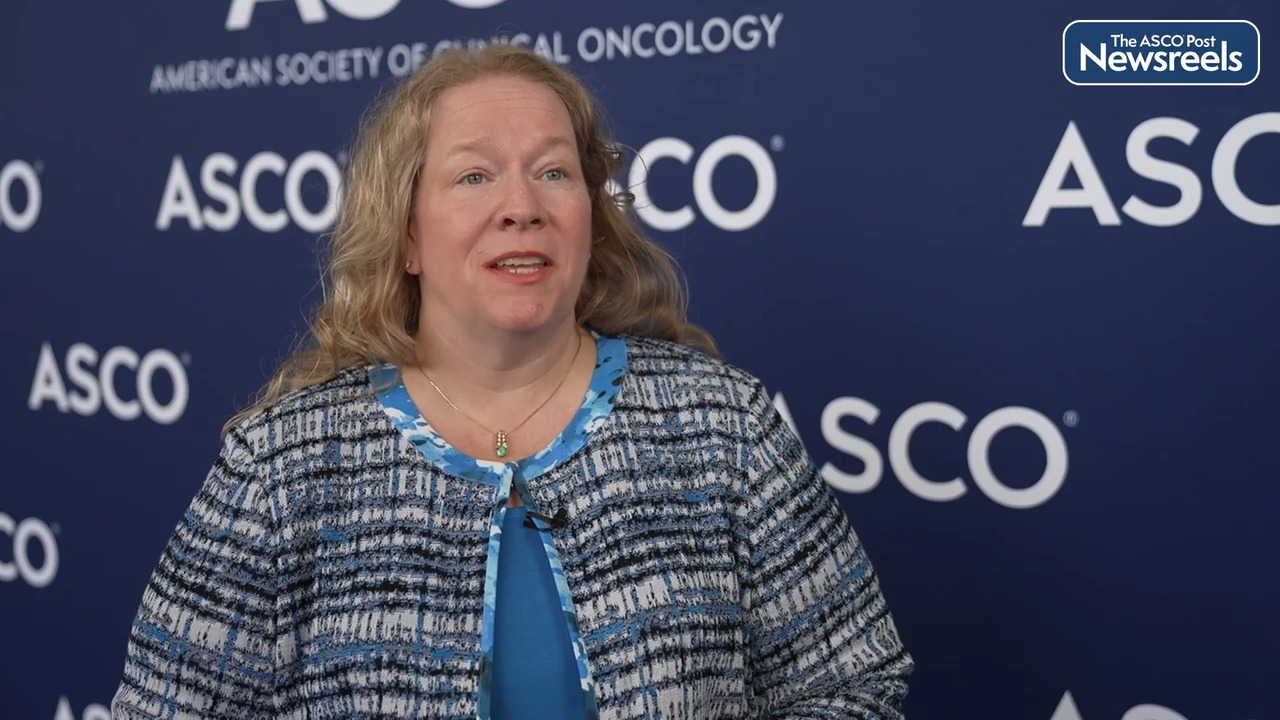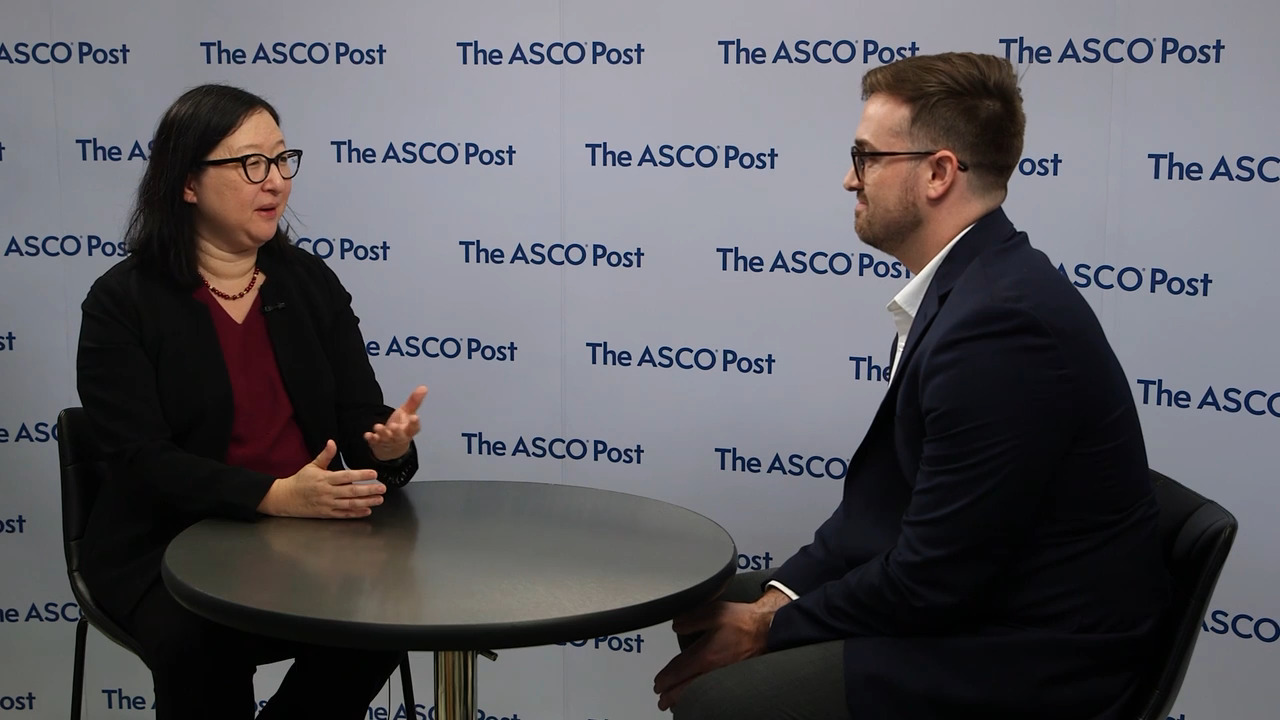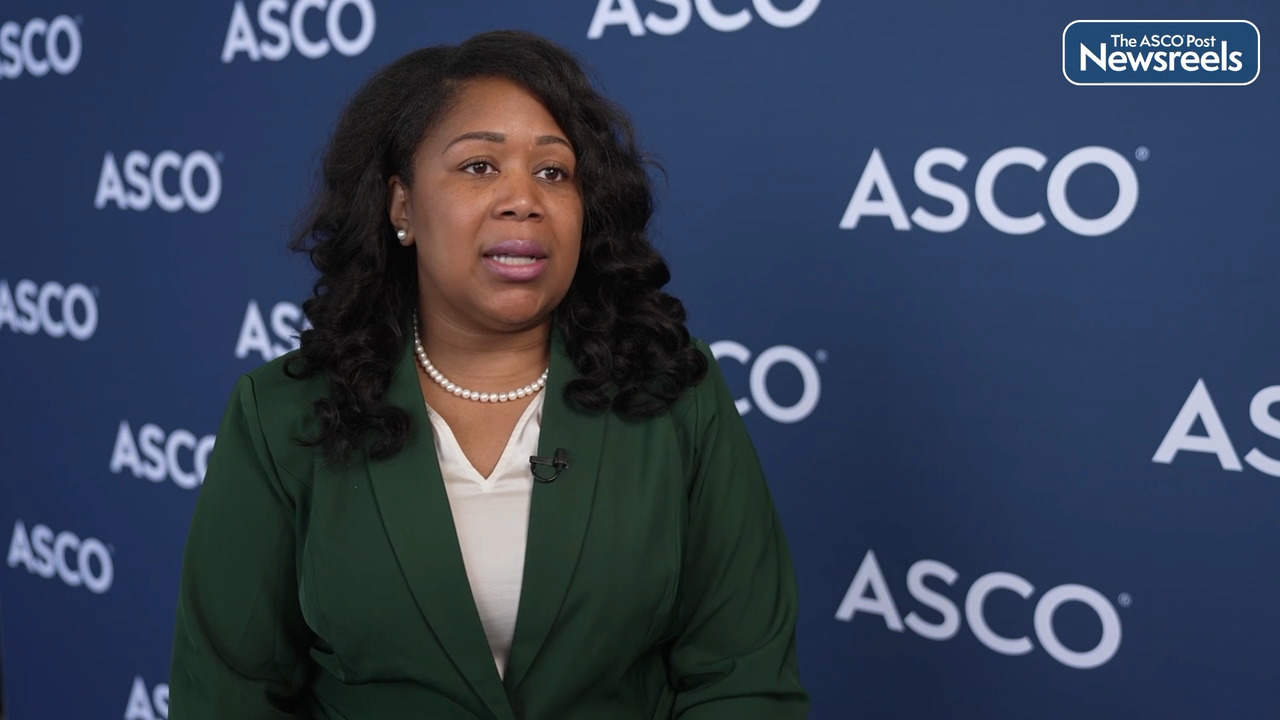Thierry Conroy, MD, on Rectal Cancer: Long-Term Results on mFOLFIRINOX vs Preoperative Chemoradiation Therapy
2023 ASCO Annual Meeting
Thierry Conroy, MD, of the Institut de Cancérologie de Lorraine, discusses phase III findings from the PRODIGE 23 trial, showing that neoadjuvant chemotherapy with mFOLFIRINOX followed by chemoradiotherapy, surgery, and adjuvant chemotherapy improved all outcomes, including overall survival, in patients with locally advanced rectal cancer compared with standard chemoradiotherapy, surgery, and adjuvant chemotherapy (Abstract LBA3504).
Transcript
Disclaimer: This video transcript has not been proofread or edited and may contain errors.
Prodige 23 is a phase three randomized trial that we perform in France in 35 centers. And we have presented the seven-year result of that study. And we confirm all the benefit we had in this study, and we already published. It was a comparison between the standard of care preoperative chemoradiation ventium surgery and six month of adjuvant chemotherapy in patients with locally advanced rectal cancer. And we compare it to three month of induction chemotherapy using the modify Folfirinox regimen than preoperative chemo radiation TME and three month of adjuvant chemotherapy. All patients receive six month of chemotherapy.
We have now a follow-up of 82 month. It means quite seven year, and we confirm a very important reduction of metastases as from 10%. We have still a benefit in the primary endpoint, which is DFS. Also benefiting cancer specific survival. One important point is that we had no increase in local relapse in the experimental arm, which is lower than 5%. And the other point is that the survival at metastatic disease was exactly the same in the two arms, and it was not reduced in the experimental arm.
We had an overall survival benefit, and this is the major point of this study, as we had the 7% overall survival benefit when quality of life improve faster and higher levels in the experimental alarm. To conclude, this is the very positive trial and very good news for patients. The next step will be to know if with induction chemotherapy with Folfirinox some patients may not receive chemo chemo radiation, especially in case of good response to induction chemotherapy. The other point is to know if induction chemotherapy will increase the rate of organ preservation.
Related Videos
The ASCO Post Staff
Narjust Florez, MD, of Dana-Farber Cancer Institute, and Roy S. Herbst, MD, PhD, of Yale Cancer Center, discuss new phase III findings on osimertinib, a third-generation, central nervous system EGFR-TKI, which demonstrated an unprecedented overall survival benefit for patients with EGFR-mutated, stage IB–IIIA non–small cell lung cancer after complete tumor resection, with or without adjuvant chemotherapy (Abstract LBA3).
The ASCO Post Staff
Manali K. Kamdar, MD, of University of Colorado Hospital, discusses the treatment landscape for the 30% to 40% of patients with diffuse large B-cell lymphoma (DLBCL) whose disease will relapse. Patients who experience relapse within 1 year of chemoimmunotherapy have poor outcomes with autotransplantation, but chimeric antigen receptor T-cell therapy has shown efficacy and manageable toxicity.
The ASCO Post Staff
Arlene O. Siefker-Radtke, MD, of The University of Texas MD Anderson Cancer Center, discusses phase III findings showing that for patients with advanced or metastatic urothelial carcinoma and FGFR alteration who already had been treated with a PD-(L)1 inhibitor, erdafitinib significantly improved overall and progression-free survival, as well as overall response rate, compared with investigator’s choice of chemotherapy (LBA4619).
The ASCO Post Staff
Eunice S. Wang, MD, of Roswell Park Comprehensive Cancer Center, and Gregory Roloff, MD, of the University of Chicago, discuss data that are the first to demonstrate post–FDA approval efficacy and toxicity rates of brexucabtagene autoleucel in adults with relapsed or refractory B-cell acute lymphoblastic leukemia. Although the data may confirm high response rates associated with this agent, they also highlight the need for interventions to reduce associated toxicities (Abstract 7001).
The ASCO Post Staff
LaQuisa C. Hill, MD, of Baylor College of Medicine, Houston Methodist Hospital, discusses study findings showing that CD5 chimeric antigen receptor (CAR) T cells may induce clinical responses in heavily treated patients with relapsed or refractory T-cell acute lymphoblastic leukemia. Manufacturing CD5 CAR T cells with tyrosine kinase inhibitors seemed to improve their potency and antitumor activity (Abstract 7002).
